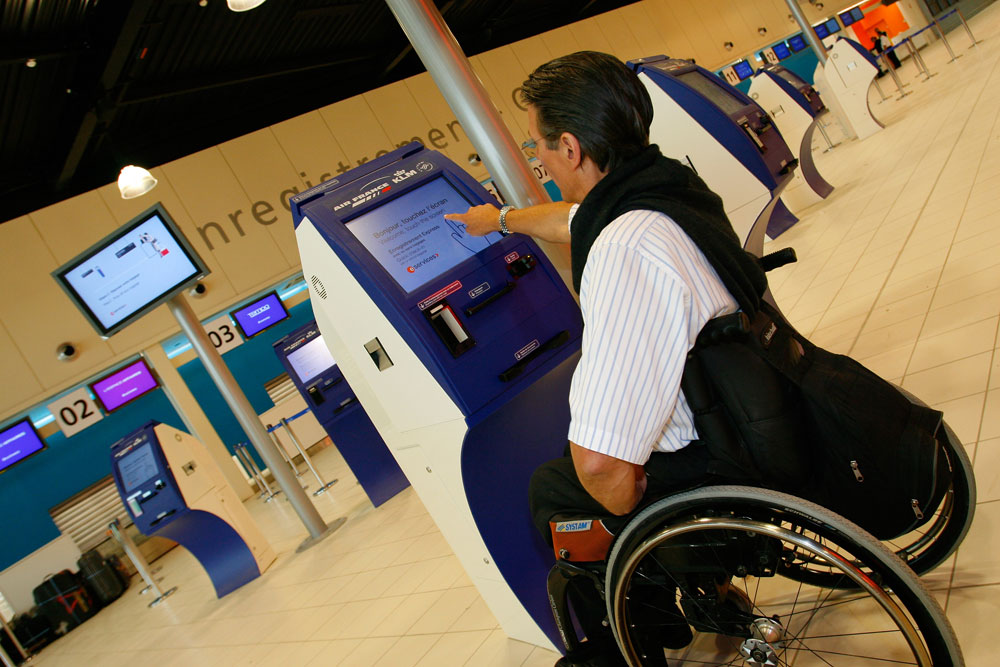Reduced mobility does not mean that you have LESS travelling possibilities. You have as many travelling possibilities as anyone else. You only need to STAY INFORMED in so far as your rights are concerned. Moreover, just as any other potential airline passenger, it is wise to follow certain guidelines, so better said tips and tricks that will simplify your journey a lot.
So, before setting off, it would be an excellent idea to consider the following:
- The seat arrangement that will best suit your needs; and you should know that SeatMaestro is your trustworthy source for free airplane seating. With SeatMaestro you can view detailed airplane seat maps and airline seat information on 175 airlines worldwide, updated daily. Wonder whether an aisle seat is better for you, if you have enough space and more importantly, if sitting there make it more convenient to get to the toilet? Avoid, by all means, choosing a seat in the emergency exit row. It won’t be of any help in case of an emergency, as the airline will undoubtedly ask travellers that are there to assist the others in such a situation.
- Call beforehand. Notify the airline company with regard to your particular situation. Thus, the flight attendants will know what to expect and will be prepared with any assisting devices that are necessary. Inform them on your disability as well as equipment aids such as canes or wheelchairs. You should also let them know if you need any special diet or help while eating (despite the fact that airline employees are not allowed to help with eating, they must help you with opening packages in addition to identifying food items placed on a serving dish). Furthermore, you should also tell them if there will be anyone accompanying you.
- Anything that you are able to do on your own, should be done without help.
- If you happen to suffer from a serious condition, than it might be a very good idea to hire a travel assistant or nurse. You might also want to consider the travelling nurses networks.
- Do not forget that planes usually take us through different time zones. In this case, how much of a jet lag will you feel?
- Check your equipment thoroughly. Be sure that your wheelchair is in good condition or that any other helping device does not need any new batteries. You can take some spare batteries to be sure that everything will be ok.
- Research before booking any plane tickets. Make an effort to fin agencies or tour operators arrange that are specialized in reduced mobility travel and count them in when you plan your journey. There are a lot of such agencies all over the USA, Europe, Canada, or Australia in addition to countless other countries. You should also search for similar agencies located at your destination. This information will be useful when going back home.
- You are the one who know exactly what your needs are, so inform the airline staff or even the travel agent on your abilities, i.e. ability to communicate, or any other issues that you have, i.e. hearing or vision impairments. Let them know if you need more time to board the plane and, after the plane has landed, ask for help when you need to leave the plane. The staff will assist you to get off the plane.
- Have any medicines on you. Put them in your carry-on baggage and do not forget that they must be accompanies by prescriptions or any other medical documents that proof that you really need that particular medication. According to TSA regulations, you also have to declare them.
Finally, make sure that you have all your documents on you, i.e. passports, credit cards, airline tickets and so on.

 En
En Es
Es Fr
Fr











